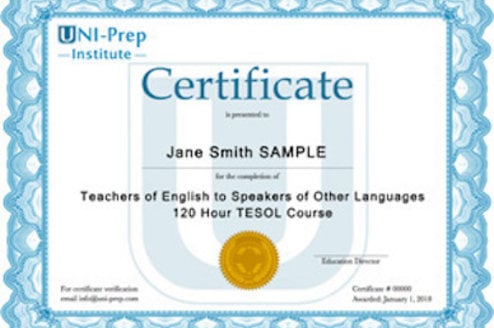Teach English in Sweden
Teaching Programs in Sweden
About
In Scandinavian Sweden, English teachers can spend weekend snorkeling vibrant coral reefs in the country’s first national park, Kosterhavet National Park, exploring Marstrand, a city dating back to 1200, or sailing past red painted houses along the archipelago’s deep blue water’s edge. Winters in the Land of the Midnight Sun may be tough to contend with, but those with an affinity for outdoor sports will feel at home -- perhaps even start to wish the season was longer!
Finding a teaching job is no easy feat in this country of nearly 10 million. With over 85% of Swedish people fluent in English, only highly-qualified teachers are considered. Cross your fingers -- or, as the Swedes say it, hold your thumbs -- and with the right qualifications and contacts, you’ll find a great opportunity. And when you do, don’t forget to embrace the Swedish tradition of celebration by buying yourself a cake to share in celebration.
At Go Overseas, we strive to provide the most comprehensive program and job listings available. At this time, we are only able to find a few teaching opportunities in Sweden, listed below. You can read this full guide to teaching in Sweden, use the Search page to explore other teaching opportunities, or browse the Teaching Job Board for opportunities around the world.
Job Types
In Sweden, there are three types of schools: public, state-funded and run; free schools, privately run but publicly funded; and private schools, privately run and funded. For foreigners seeking to teach short-term in Sweden, it is complicated to teach in a public school, though not impossible.
Public Schools
A foreign bachelor’s degree in Education is required to apply for a certificate with the Skolverket, the National Agency for Education, a certificate necessary for employment. To obtain this certification, teachers have to demonstrate a working level of Swedish.
Private Schools
Private schools in Sweden have more relaxed certification requirements than public schools, but are still looking for highly skilled people. Applicants should hold a bachelor’s degree and a TEFL certificate, and preferably specialized knowledge in business or other industries. Preference is for teachers who not only have the vocabulary, but also previously worked in that industry.
Au Pair
While au pairing isn’t the traditional classroom setting (not that Sweden has ‘traditional’ classroom settings, anyway!), it’s a great option for those who love children, want cultural immersion and are not from a European Union country, as there is a specific visa for au pairs. Use websites such as Au Pair World to find a job. Once you have a letter of invitation from your future family, you can apply for the au pair visa. The caveat is there must be an emphasis on learning the Swedish language and culture aside from your caretaking and tutoring duties.
Folkuniversitetet
The Folkuniversitetet is known as a ‘community university’ system that provides quality instruction for adult learners on a variety of subjects. The Folkuniversitetets offer English classes of various levels and skills, such as conversation for business or basic grammar. This is the easiest way for English teachers to find a job in Sweden.
Finding a Job
When to Apply For Jobs in Sweden
Public schools do most hiring in September and January, just before the start of semesters. Private schools and folkuniversitetets hire year round.
How to Apply for Jobs in Sweden
Teaching jobs in Sweden are rarely advertised online, and usually found upon arrival in the country. This can be tricky for non-EU citizens, who will only be granted a 90-day tourist visa without an invitation for employment. Find a list of schools in your area and approach them for open teaching positions. Be sure to always bring copies of teaching certificates and a passport-sized photo with your CV. Be sure to show humility on your CV and leave out North American values of individualism and an “I am the best” attitude.
Average Salary of Teaching Jobs in Sweden
Teaching salaries can be quite low depending on the type of school and the specialization knowledge required. Teachers can earn between USD $500 – 3,000 a month. Be aware taxes are quite high and the cost of living is high, but that also means the standard of living is exceptional for most people.
Qualifications Needed
Unlike other countries, simply being a native English speaker doesn’t give teachers much advantage. In a country with exceptional English instruction and where nearly all residents are fluent, holding certain qualifications are key. A bachelor’s degree and TEFL certificate is the minimum required for all teaching jobs. Teachers should also have experience in other industries, such as business, to be able to give specialized vocabulary and cultural competence training.
Teachers hoping to work in the public school system should also have a bachelor’s in education, be able to demonstrate Swedish language proficiency and apply for a Swedish teaching certificate through the National Agency for Education.
Need to Know
Popular Destinations to Teach in Sweden
Unlike the image of Sweden most North Americans grew up with, this country isn’t just filled with snow and darkness! There are cities jam-packed with charming architecture, calming waterways, and a smorgasbord of gastronomic innovation.
Some of the most popular cities for expats are Stockholm, Solna, Malmø, Umeå, and Gothenburg.
While Stockholm, the capital and largest city spread over 14 islands, is a cosmopolitan hub perfect for culture lovers, Solna, Malmø, Umeå and Gothenburg have their own allure. With all offering residents a high standard of living, delicious food and opportunities to get close to nature, there’s no wrong place to live.
Visas & Sponsorship
Those who hold EU citizenship have work rights in Sweden. Those with other passports will need a letter of invitation from a school to apply for a work visa. However, because most jobs are not advertised online, finding a job before arriving can be a challenge. The best option is to arrive in Sweden for a 90-day tourist visa and find a school to sponsor you. After this, you can obtain a work permit.
Teacher Work Culture in Sweden
For Swedes, punctuality is a highly valued trait. Greetings are done by shaking hands and although titles are not important, it’s best to call someone by their title and last name until they let you know it’s okay to be on first name basis. Dress isn’t typically formal -- jeans may often be work appropriate -- but be sure to always look clean and well put-together.
Classroom Etiquette in Sweden
Sweden is famous for its progressive stance on education. For example, some schools in recent years have abandoned traditional classroom setups and gone to cafe-style tables. Regardless of their perspective on education best practices, Swedes take learning very seriously.
Often, there is a sense of autonomy and independence in students. Lectures are common, but in some schools there is a strong emphasis on self-motivation. Students work on their own and meet with the teacher before and after completion of projects. Instruction can also include group work and discussion.
Health & Safety
Crime rates in Sweden are very low and it’s a very safe country for travelers and foreigners. Still, use general precautions, such as watching valuables and locking car doors, as you would anywhere else. However, the U.S. Department of State warns travelers to be cautious of terrorism threats in other parts of Europe, as these could potentially cross into Sweden.
In Sweden there is also a low risk for infectious diseases, though travelers should be sure to have standard vaccinations such as hepatitis A and B and MMR. Those who have recently visited countries with higher health risks may need to show proof of further vaccines such as yellow fever.
Travelers who are sensitive to lack of sunlight or who suffer from seasonal depression should be aware of Sweden’s diminished hours of sunlight in winter. Some areas of Sweden only have four hours of daylight, while others have around five and a half. The weather can also be unpredictable in winter, with heavy snow and ice, so be extra safe while driving or participating in outdoor activities. Always be sure to have warm enough clothes and proper waterproof shoes.














